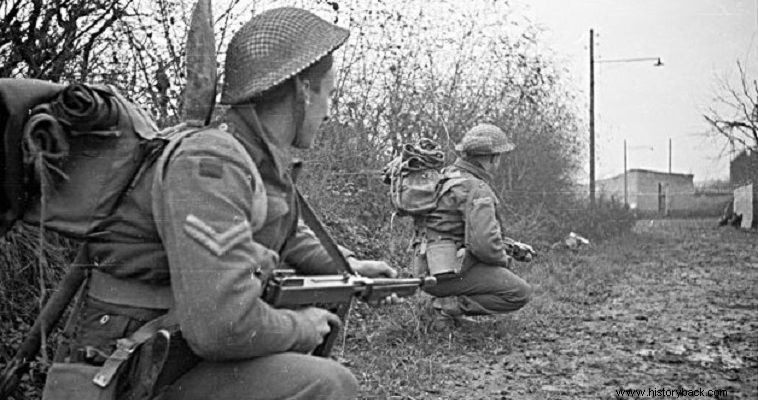
In March 1941, Group W landed in Greece with the 6th Australian Infantry Division (AIP), the 2nd New Zealand Infantry Division (NZIP) and the 1st Armored Brigade (ATB). The well-known events followed, the collapse of the front and the retreat of the British forces towards southern Greece in order to escape from the pursuing Germans.
Kalamata was one of the last evacuation points. The evacuation of British forces from there began on 24 April and by the 26th over 8,000 men, RAF personnel and Australians had escaped. A number of New Zealanders of the Reinforced Battalion and the 24th and 28th Maori Battalions were left behind and would leave the following evening. However, on the evening of April 28, the first elements of the German 5th Panzer Division (MPa) arrived in Kalamata.
The New Zealand divisions expected to withdraw were encamped in the olive groves east of the town. On the night of April 28-29, 1941, a German armored phalanx entered the city of Kalamata. The German force was reinforced with guns and mortars and immediately attacked the troops waiting in the harbor for the ships they would board. The situation was critical.
Edmund Sharpin of the Royal Logistic Corps reports:“I was ordered to drive into town. Some 20 odd-looking guys got on board, an Australian 2.05 m tall, maybe taller, holding a Boys anti-tank rifle to which he had attached, under the barrel, a bayonet with wire and fired with it like a common rifle... There were still some New Zealanders and men of the King's Royal Rifle Corps with Tommy guns and Brens, but little ammunition.
"After we got ready we moved towards the pier. Arriving there we got out of the vehicle and opened fire on anything that moved. In a few minutes it was all over. Only one German captain remained hidden behind the wheels of a 88 killivan gun… One shot from the Australian Boys and the captain ceased to offer their services to Hitler forever… The surviving Germans surrendered with their hands up.
"The battle continued but our ammunition was low and fatigue and thirst tormented us." The men were ordered to take cover butSergeant Hinton called out:"Who will come with me?" and rushed against the nearest Germans. The Germans attacked him but they missed and he pulverized them with two grenades. Then he charged with the lance followed by a few soldiers.
The Germans abandoned a cannon and retreated into the houses. Hinton broke down the door and entered the house, neutralizing the Germans. He did the same in a second house. But German reinforcements arrived. Hinton was hit badly in the abdomen and taken prisoner. He remained a prisoner of war until 1945. He was awarded the Victoria Cross.
In fact, when the German commander of the POW camp was informed of his award, he organized an honorary ceremony. When he was released by the Americans, wearing an American uniform, he participated with the 4th MP in battles in Germany. He returned to Britain on 12 April 1945. He died in 1997. However, so much heroism was ultimately wasted, as the Royal only managed to evacuate 332 wounded that night. Finally the New Zealanders were forced to surrender as the Germans threatened to level the city with their artillery.
